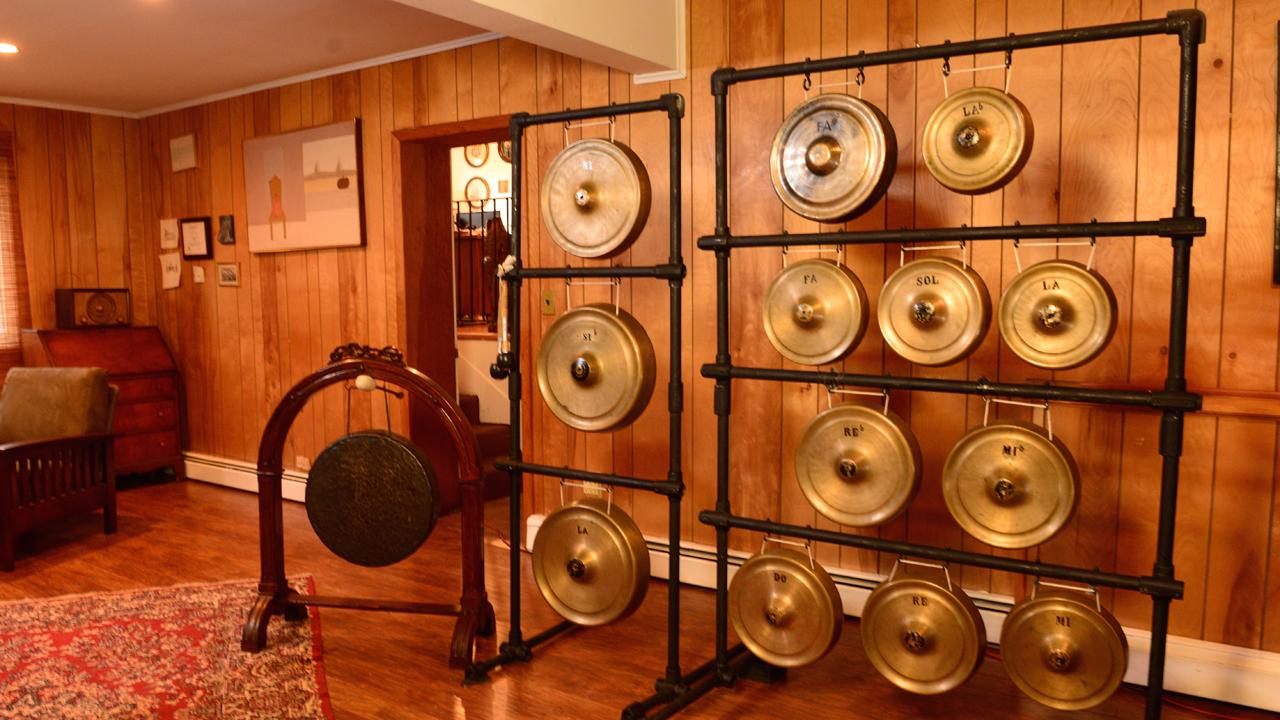Strange Inheritance: Gong Show proves anything can end up in a warehouse in Queens
It’s a piece of music history — a priceless set of gongs the great composer Giacomo Puccini ordered custom-made for what would be his final opera. The odd turn of events that landed the gongs in a warehouse in Queens is recounted in the latest episode of the FOX Business Network series “Strange Inheritance” with Jamie Colby.
The program premieres Monday, Feb. 5 at 9:30 p.m. ET.
Puccini set his last opera “Turandot” in ancient mythical China. Turandot is a princess who is reluctant to marry, so she challenges her suitors with three riddles. Whoever answers them correctly wins the princess, whoever doesn’t loses his head.
The opera was a percussionist’s dream, with tubular bells, a glockenspiel and an array of gongs that sound when each suitor arrives at the palace.
Puccini’s problem was that he couldn’t find any gongs that made just the perfect sound, says Fred Plotkin, author of Opera 101.
“So Puccini had gongs manufactured specifically for Turandot,” Plotkin says. “It was the only way he could have those ethereal Chinese sounds that he heard in his head.”
The gongs arrived, but Puccini died before he finished the last act. A composer named Franco Alfano was hired to complete the opera based on Puccini’s notes. “Turandot“ became one of the most performed operas around the world, although the gong parts would continue to bedevil the musicians in the pit.
One director who shared Puccini’s obsession with those gongs was Anthony Stivanello of Queens. On a trip to Italy in the 1960s, he actually paid a call on Puccini’s publisher, who still had the originals.
Stivanello’s son Roberto said his father would do about anything to get them.
“It’s like Stradivarius, except there’s only one set of true Puccini gongs,” he said. “So my father, being a colorful figure, started playing cards with the publisher, and he won the gongs on a bet.”
The gongs remained in Stivanello’s warehouse until 1975, when a percussionist with the New York City Opera named Howard Van Hyning got a summer gig on a production of “Turandot“ in Central Park. Though he owned a vast array of cymbals among his thousands of percussion instruments, he also couldn’t find any that provided just the right sound.
That’s when he got a tip that Puccini’s own gongs were at Stivanello’s shop in Queens. Van Hyning desperately wanted to buy them, but Stivanello would only agree to rent them out. It took Van Hyning six years to wear Stivanello down.
Van Hyning’s wife, Marlene Piturro, recalled that day.
“He came home with a burlap bag and he said, ‘Look what I have!’ And he dumped out a few of the gongs. He paid $8,000. I was speechless.”
Van Hyning toured with the gongs until he died in 2010. Piturro, however, has been reluctant to lend out her strange inheritance after the set went missing for several days at Newark Airport.
“Howard was more than willing to send them out,” Piturro says. “He loved that they could go to different opera houses, but I feel I can’t take that risk.”
Piturro believes they are worth $2 million. “Nothing like this has ever been sold.”
If she gets her price, she says she will use the proceeds to fulfill her husband’s dying wish: to commission a new ending for “Turandot” that improves on Alfano’s ending by featuring Puccini’s gongs more prominently.




















